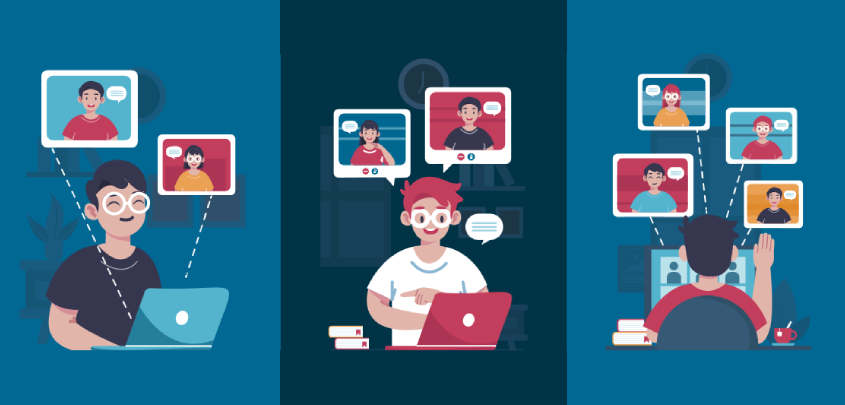
19, Feb, 2024
Guarding Yourself Against Call Bombing / Virtual Meeting Bombings
In the aftermath of COVID-19, virtual meetings have surged in importance, becoming vital tools for communication and collaboration. Whether for work, education, or social gatherings, these digital platforms have revolutionised how we communicate. This has also introduced a new threat called call bombing, let’s have a deep look at it.
What is Call Bombing?
Call bombing, also known as phone bombing or dial bombing, is a malicious activity where a targeted individual or organization receives a large number of unwanted phone calls in a short period.
The goal is to overwhelm the recipient, disrupt their communication channels, and create inconvenience or chaos. Call bombers often use automated tools or services to initiate a massive volume of calls, making it challenging for the victim to use their phone for legitimate purposes. This form of harassment can be disruptive and intrusive, affecting both individuals and businesses.
Virtual meetings Bombing
In a typical Zoom bombing incident, attackers often exploit vulnerabilities in meeting platforms or gain access to meeting links to disrupt the proceedings.
Once they’re inside the meeting, they can cause chaos by making loud noises, sharing inappropriate content that is lewd, obscene, racist, or even harassing participants.
Understanding the Impact
The consequences of call bombing can be significant and disruptive:
Disruption of Meetings: Excessive calls can overwhelm the meeting platform, causing it to freeze or crash, making it difficult for participants to communicate effectively.
Privacy Concerns: Unauthorised access to meetings can lead to the exposure of sensitive information and discussions, compromising the privacy and confidentiality of participants.
Loss of Productivity: Dealing with disruptions can waste time and can ruin the agenda of the meeting, affecting productivity and efficiency.
Emotional Impact: Call bombing can create a sense of unease or discomfort among participants, especially if they are subjected to harassment or offensive content by these attackers.
Protecting Against Call and Other Bombing
To keep your online meetings safe from these bombings, consider implementing these measures:
Secure Meeting Settings: Use security features provided by the meeting platform, such as meeting passwords, waiting rooms, and authentication mechanisms, to control access and prevent unauthorised entry to the meeting.
Share Meeting Links Wisely: Avoid sharing meeting links publicly and only provide them to trusted participants through secure channels.
Monitor Participants: Keep an eye on the list of attendees and promptly remove any unauthorised users or suspicious activity.
Immediate Responses:
- Unshare Screen: If you’re sharing your screen, immediately stop sharing.
- Remove Disruptive Participants: Hosts should promptly remove disruptive participants.
- Block Your Number: Block your number from call-bombing websites that you can generally find on the internet, as spammers often use such platforms for pranks.
In a world where online meetings have become the norm, protecting against call bombing and other cyber threats is essential for maintaining a safe and productive meeting environment. By understanding the risks, implementing security measures, and fostering a culture of vigilance among participants, you can help ensure that your online gatherings remain secure and enjoyable for everyone involved.
With virtual meetings now a staple of modern communication, it’s crucial to be aware of such threats and how to protect against them to ensure safe and effective collaboration.
